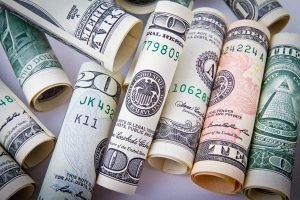In an ever-changing economic landscape, the importance of financial resilience cannot be overstated. The ability to withstand unexpected financial shocks and continue on a steady path to financial freedom is a key component of a successful, stress-free life. One of the cornerstones of this resilience is effective cash flow management.
As we delve into the world of personal finance, we find that most people often focus on the big-ticket items such as investments, retirement funds, and major purchases. However, it’s the nitty-gritty of day-to-day cash flow that can truly make or break one’s financial stability.
The Foundation: Tracking Your Cash Flow

At the heart of sound financial management is the ability to understand where your money comes from and where it goes. This starts with tracking your cash flow. The process is simple, but its impact is profound. Every dollar earned and spent should be accounted for.
Begin by documenting your sources of income. This includes your salary, side hustles, rental income, or any other money coming in. Next, meticulously list your expenses. These encompass not only fixed bills like rent, mortgage, utilities, and insurance but also variable expenses like groceries, dining out, entertainment, and transportation. Even the seemingly insignificant expenses, like that daily cup of coffee or a spontaneous online purchase, can add up.
The Power of Budgeting
Once you’ve tracked your cash flow, the next step is creating a budget. A budget is your financial roadmap, guiding you towards your goals. Start by defining your financial objectives, whether it’s saving for a vacation, paying off debt, or building an emergency fund.
A well-structured budget allocates specific amounts to different spending categories, ensuring that your income is distributed in a way that aligns with your financial goals. Moreover, it helps identify areas where you may be overspending and where you can cut back to increase savings.
Emergency Fund: Your Financial Safety Net
Life is unpredictable, and having an emergency fund is the cornerstone of financial resilience. This fund acts as a safety net in case of unexpected expenses, such as medical emergencies, car repairs, or job loss. Aim to save at least three to six months’ worth of living expenses in your emergency fund.
By consistently saving a portion of your income and allocating it to this fund, you can weather financial storms without falling into debt or compromising your long-term financial goals.
Smart Debt Management
Debt can be a significant impediment to financial resilience. Therefore, part of effective cash flow management involves a strategic approach to debt. Prioritize paying off high-interest debt, such as credit card balances, as this can save you substantial amounts of money over time. Additionally, consider consolidating or refinancing debt to secure lower interest rates.
Investing in Your Future
Once you’ve established a strong financial foundation through cash flow management, it’s time to think about long-term wealth building. Investing in assets that appreciate over time, such as stocks, real estate, or retirement accounts, can help you grow your wealth and secure your financial future.
Remember, financial resilience is a journey, not a destination. It requires discipline, patience, and adaptability. As you make progress, regularly review and adjust your budget and financial goals to ensure they align with your evolving circumstances.
In conclusion, effective cash flow management is not just a financial strategy; it’s a way of life. By tracking your cash flow, creating a budget, building an emergency fund, managing debt, and investing wisely, you can build a solid financial foundation that empowers you to withstand economic turbulence and work towards your financial goals with confidence. In the end, it’s not just about the money; it’s about the peace of mind that comes with knowing you’re in control of your financial destiny.




